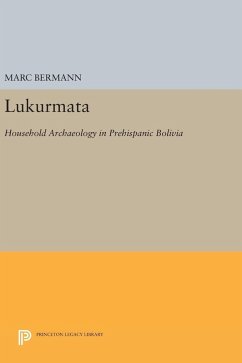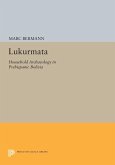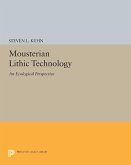Household archaeology, together with community and regional settlement information, forms the basis for a unique local perspective of Andean prehistory in this study of the evolution of the site of Lukurmata, a pre-Columbian community in highland Bolivia. First established nearly two thousand years ago, Lukurmata grew to be a major ceremonial center in the Tiwanaku state, a polity that dominated the south-central Andes from a.d. 400 to 1200. After the Tiwanaku state collapsed, Lukurmata rapidly declined, becoming once again a small village. In his analysis of a 1300-year-long sequence of house remains at Lukurmata, Marc Bermann traces patterns and changes in the organization of domestic life, household ritual, ties to other communities, and mortuary activities, as well as household adaptations to overarching political and economic trends. Prehistorians have long studied the processes of Andean state formation, expansion, and decline at the regional level, notes Bermann. But only now are we beginning to understand how these changes affected the lives of the residents at individual settlements. Presenting a "view from below" of Andean prehistory based on a remarkably extensive data set, Lukurmata is a rare case study of how prehispanic polities can be understood in new ways if prehistorians integrate the different lines of evidence available to them. Originally published in 1994. The Princeton Legacy Library uses the latest print-on-demand technology to again make available previously out-of-print books from the distinguished backlist of Princeton University Press. These editions preserve the original texts of these important books while presenting them in durable paperback and hardcover editions. The goal of the Princeton Legacy Library is to vastly increase access to the rich scholarly heritage found in the thousands of books published by Princeton University Press since its founding in 1905.
Hinweis: Dieser Artikel kann nur an eine deutsche Lieferadresse ausgeliefert werden.
Hinweis: Dieser Artikel kann nur an eine deutsche Lieferadresse ausgeliefert werden.








